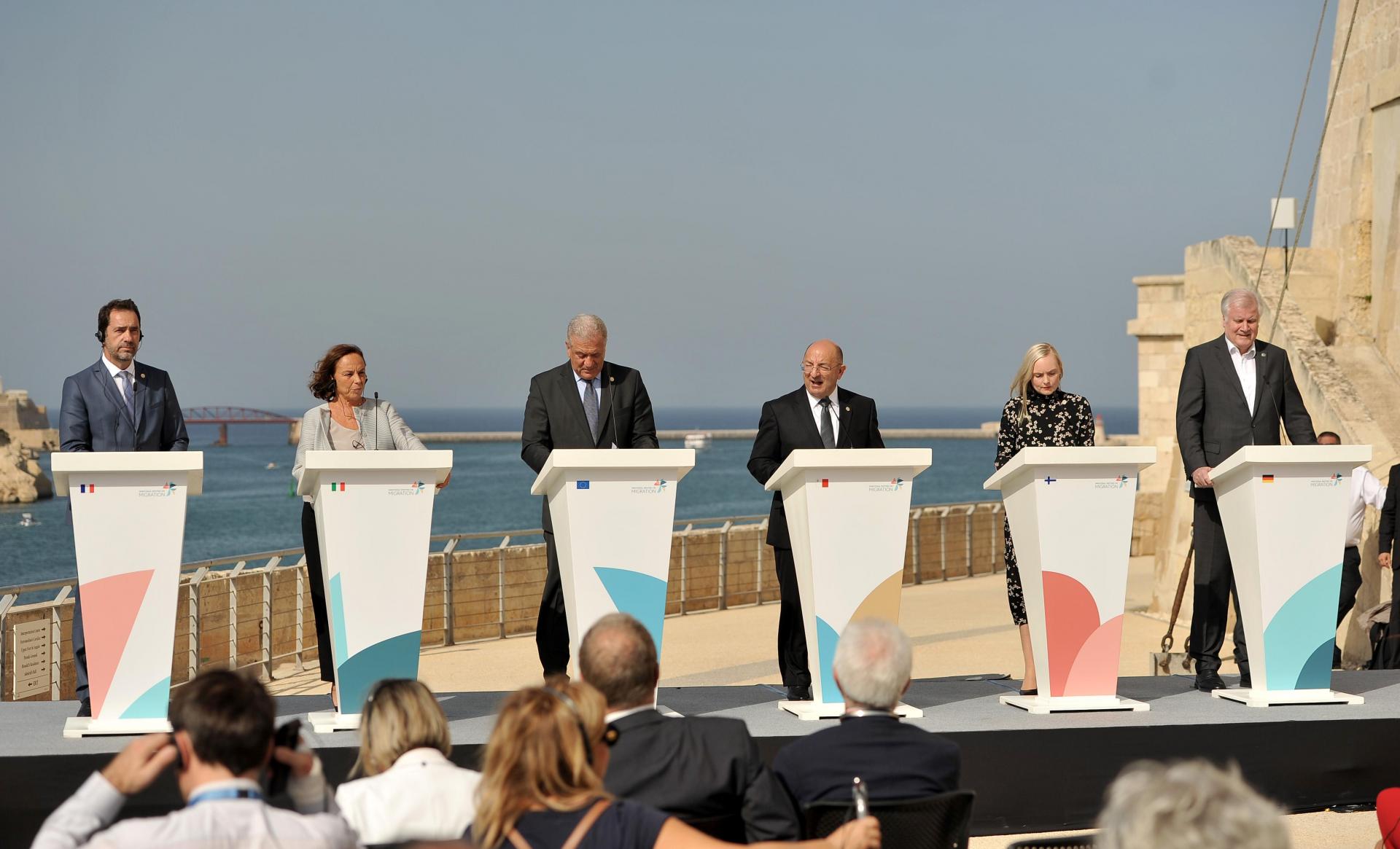Home Affairs Minister Michael Farrugia has shed some light on a draft migration deal which Malta, Italy, France and Germany will be presenting to other EU governments next month.
The deal, which was agreed earlier this week during a meeting in Malta, would create a system for EU countries to disembark, host and relocate migrants crossing into Europe. It is currently a draft proposal and must win the backing of several other governments if it is ever to come into force.
In an interview on the TVM show Ras imb Ras, Dr Farrugia gave details about some of the draft proposal’s provisions.
1. Where migrants are brought
The deal proposes having a list of EU safe ports where migrants can be disembarked.
Migrants rescued at sea would be taken to each of these ports on a rotation basis. If reception facilities in a port due to receive migrants are full or overcrowded, arrivals will be taken to the next port on the list.
2. Where migrants end up
The deal also seeks to have a list of countries which will take in relocated migrants. It proposes “exact quotas which are very clear from the outset”, Dr Farrugia said, allowing governments to know from beforehand just how many migrants they are expected to take in.
The minister did not say whether the proposed quota mechanism has already been established, although Germany has gone on record and said that it would be willing to take in one in every four arrivals.
Any provision for mandatory relocation is likely to be a red line for EU member states which have adopted anti-migration policies, such as Hungary or Poland.
3. What if a country is overwhelmed?
A defined formula would give countries which find themselves under severe stress from a rush of migrant arrivals some breathing room.
The formula would provide an objective way of deciding when a country’s reception facilities are at breaking point. When that threshold is reached, a relocation mechanism would kick in and migrants would be moved to other countries, the minister said.
4. How NGO rescues must be carried out
The draft position paper suggests having defined rules for charity rescue vessels operating in the Mediterranean.
 Ministers from four EU member states as well as the EU's migration commissioner announce the draft deal earlier this week. Photo: Chris Sant Fournier
Ministers from four EU member states as well as the EU's migration commissioner announce the draft deal earlier this week. Photo: Chris Sant FournierThese rules would include things such as the minimum equipment needed to carry out sea rescue missions – “some vessels are not equipped for rescues”, the minister said – as well as clear rules concerning flag states.
“We cannot have flag states which register a boat but then say they have nothing to do with them,” he added.
5. Emergency clause
Dr Farrugia also mentioned something which might make other EU member states more willing to contemplate this deal when they assess it on October 8: the fact that it can be easily cancelled.
According to Dr Farrugia, a clause in the proposed deal would allow member states to scrap the whole thing and go back to the drawing board if the formalised system ended up serving as a so-called pull factor.
EU governments have long worried that an EU-wide migrant relocation system would end up attracting more migrants to Europe. This proposed 'red button' clause would give them a way of returning to the status quo if that scenario came to be.
The deal could also be scrapped if NGO vessels did not respect the rules agreed upon by EU member states, Dr Farrugia added.
This clause might make it easier for sceptical governments to agree to a deal, but also makes any eventual arrangement a far more precarious one.
What happens next?
EU member states will discuss the draft proposal during an EU Council meeting to be held on October 8.
During that meeting, they will be able to propose amendments, suggest ports which could be added to the list of disembarkation sites or make their country available as a relocation destination.
Achieving some sort of consensus will be difficult, given the politically sensitive nature of migration policy.
Several EU member states have already said that in principle they are willing to take in relocated migrants. Others, however, have made it clear that they will not entertain any discussion about a solidarity mechanism for migrant arrivals, and Dr Farrugia acknowledged that not all EU member states would be receptive.
That means that the Finnish EU Council presidency's best bet is to win over a cluster of member states which in July said that they were willing to share responsibility for resettling migrants rescued in the Mediterranean.